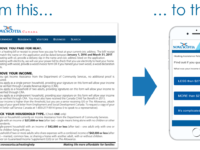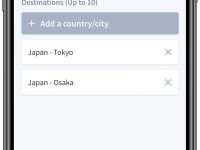Impact Canada is a whole-of-government effort that deploys outcomes-based policy and program approaches. It features a novel set of rules, processes, and supports to allow the Government of Canada to support innovative methods like challenges, pay-for-success funding, and behavioural insights, which previously faced significant barriers to adoption. Through these systems-level changes, the Government can now apply these approaches to produce better outcomes for citizens and create greater public
Innovation Tag: Service Design
Mi Taxi, My Cab, part of Mexico City’s App, was created to boost trust in the public cab network by making the service safer. It provides information about the drivers and the cabs' public concessions. Users can rate the trip and activate a panic button connected to the City’s Intelligence Agency, C5.
Negative perceptions of safety among the public lead the Government to grasp the situation faced by drivers and users, particularly women, and thus developed the initial phase of the app,…
Radio Pata is a 24/7 community radio, co-created with inhabitants of Pata Rât - a 2,000 strong Roma slum near Cluj-Napoca, Romania. Radio Pata is streamed through a custom mobile application, also implementing grass-roots community self-organization tools and a feed on public social services.
The project aims to empower the Pata Rât community, to connect the Pata Rât community and the larger social body of Cluj-Napoca, and to catalyse societal/institutional change.
Finland is the first country in the world to allow its citizens to manage digital mandates and act on behalf of another person or organization in digital and physical services.
Mandates are provided with Suomi.fi-e-Authorizations, which is free to use for public, private and third sector service providers and end-users in Finland.
The service is built and shared as an open-source and can be utilized by other countries and organisations to provide similar e-Authorization-solutions.
The City of Austin has launched a shared approach to user-centered design, iterative technology development, and collaborative policymaking through its Office of Design & Delivery, which has grown to include over 25 experts in service design, interaction design, content strategy, web development, and agile product management. Through cross-disciplinary teams spanning design, technology, and policy, their teams have improved outcomes in public safety, public health, and digital transformation.
Work 2.0 Lab is a new collaborative working and learning environment. It is available to all agencies and civil servants in government and other organisations involved in the 2-years experiment. The purpose is to promote better, higher quality ideas, solutions and decisions on cross-cutting matters outlined for example in the government program. Work 2.0 Lab provides the structures and platforms (environments, spaces, networks, methods) for collaborative learning needed to work together.
Parents Gateway is a one-stop, centrally coordinated app streamlining engagement between parents and schools, capable of direct mass communication of time-sensitive messages of high level of importance to all parents nationwide. With curriculum time saved, teachers previously burdened with onerous administrative work are free to focus on core teaching and to better meet students’ needs. Parents stressed by disparate admin processes for children in different schools can now manage all in one…
Case Study
Protecting public health and reducing the availability of illicit tobacco products through the…
Tobacco use is extremely harmful to health and its illicit trade causes billions in tax revenue losses each year. The EU Tobacco Products Directive (TPD) provides for the establishment of a tracking and tracing system that enables the authorities to follow the movements of every packet of the 26 billion or more sold or produced in the EU, along every step of the supply chain, via real-time reporting by industry. The system is a tool for authorities in implementing their tobacco control policy.
The former municipality of Molenwaard was the Netherlands’ first local council to operate without a town hall. This innovation came about when three local authorities merged together into one municipality. Despite becoming a much larger municipality they still wanted to stay close to the community. They decided to no longer have a service desk in the traditional sense of the concept. Instead, the local authority goes out into the community and is, therefore, always nearby.
Case Study
Putting Users First: An Innovative Approach to the Modernization of the Heating Assistance Rebate…

The Heating Assistance Rebate Program (HARP) helps over 42,000 low income Nova Scotians with the high cost of heating their homes in the winter. In 2016 Service Nova Scotia used an innovative approach to modernize HARP from a paper-based application to an online system to improve user experience and government processes. The modernization of this program was uniquely user-driven with significant user-testing leading the transition process and continuous user-testing for ongoing improvement.

